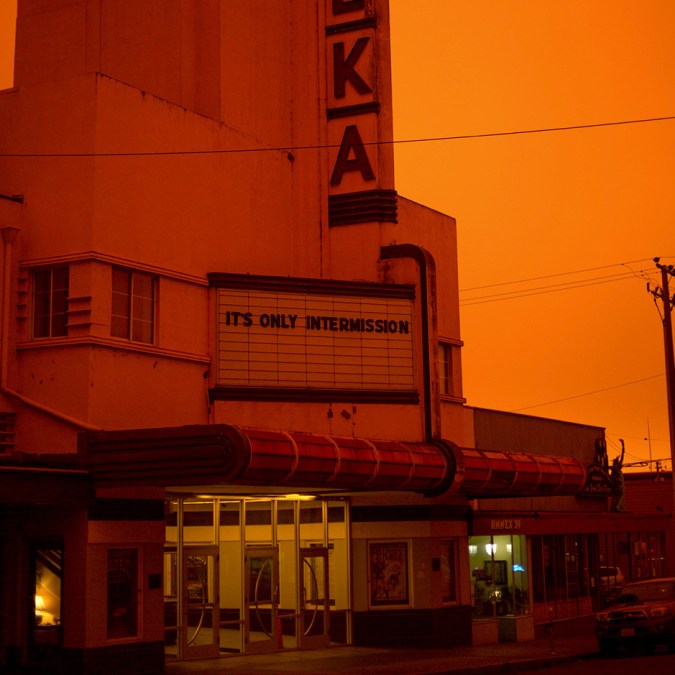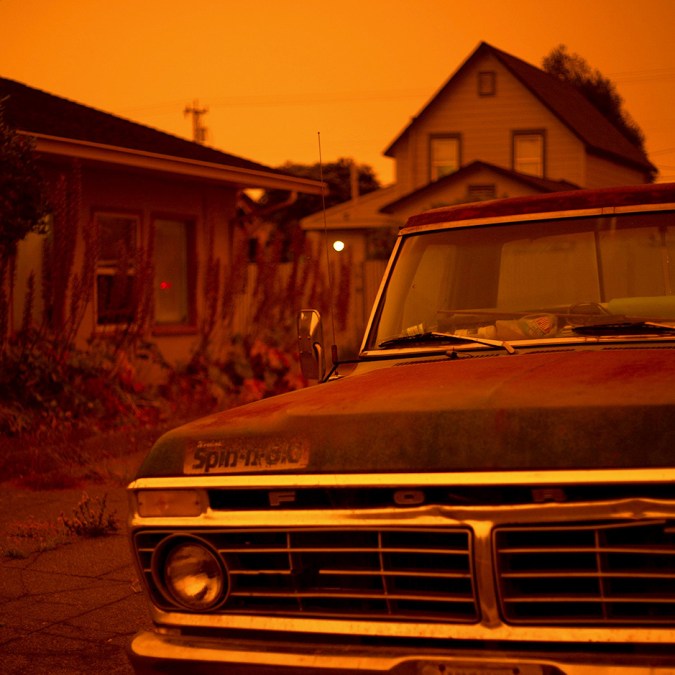It felt like the start of a dystopian novel. For millions of people in Northern California, Wednesday, Sept. 9 will now be remembered as the day the sky turned orange.
The day was eerie, ominous, unnerving and apocalyptic. By all accounts, it was like something out of a movie—Blade Runner 2049 to be exact. Blue skies were replaced with an unnatural shade of orange that lingered all day long, and time didn’t make sense.
The entire San Francisco skyline was cast in an orange glow—which would have been beautiful if it wasn’t so terrifying.

The orange sky was the result of a meteorological anomaly in which weeks worth of smoke from all around the state stayed suspended in the sky, trapped above the marine layer, completely blocking out the sun. It was an event so rare that the National Weather Service called it “beyond the scope of our models.”

The fact of the matter is, California is on fire. More than 3 million acres have burned, towns have been destroyed and thousands of people have been displaced. All in all, the long term impact the fires will have on local communities along the West Coast is immeasurable.
“Climate change has clearly made this worse,” Zeke Hausfather, a climate scientist at Oakland-based think tank Breakthrough Institute, told the Los Angeles Times. “People who have lived in California for 30, 40 years are saying this is unprecedented, it has never been this hot, it has never been this smoky in all the years I’ve lived here.”
While California has always been prone to fires, 2020’s hotter than normal temperatures have left land particularly dry and vulnerable. In fact, not only did the 2020 fire season start earlier than years past, it has already burned 20 times more land than the entirety of the 2019 season, which destroyed about 118k acres in total.

It’s almost as if after a century of fire suppression, ecological neglect, and malpractice, global warming is forcing itself on us—screaming for help. But, are we listening?

In the days since, Governor Newsom passed a bill that allows former inmate firefighters to apply for professional firefighter roles, a position that, although trained for, they had previously been banned from.
Additionally, over the last few years, California officials have started to seek the counsel of native people who protected the land with fire for centuries before it was outlawed by the U.S. government. The partnership, which is still in its early stages, is a step in the right direction, but there’s still so much work to be done.
As fires continue to spread through California and much of the West Coast, impacted communities need your support. One group on the front lines is The Latino Community Foundation, an organization that’s reactivating their Wildfire Relief Fund to deploy contributions to Latino-led organizations supporting families displaced by the current wildfires across all the state of California.
Donating is only one piece of the puzzle, though. In order to have a lasting impact, we are going to have to do our part. We’ve got some ideas on how to get started below:
- Contact your members of Congress and ask them to propose new/or support existing legislation addressing climate change (remember, they work for you!)
- This November, vote for leaders who include climate change in their policy platform. We need our government to acknowledge and take action against, climate change.
- Consider your personal impact on the environment, and start changing your consumption behaviors.
- Follow Latines like Cindy Villasenor, Reza Cristián, Sally and Karen Ramos to learn simple but effective changes you can make in your day to day lives.




